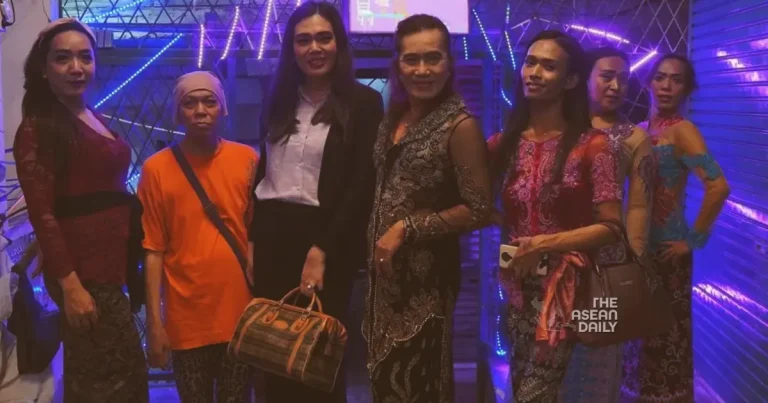18-12-2023 (JAKARTA) In the heart of Jakarta’s slums, an extraordinary transgender community is harnessing the power of fashion to shed light on their lives and the environmental challenges of this densely populated and polluted city.
On a makeshift catwalk that commands the attention of their neighbors, these remarkable women proudly display their creations: vibrant dresses meticulously crafted from discarded plastic cutlery and bottles. In the spirit of the festive season, some of the garments even resemble Christmas trees, adding an extra touch of whimsy to their message.
The brainchild behind this event is Mama Atha, the visionary founder of the Sanggar Seroja dance studio and de facto leader of the transgender community in Duri. The residents of this neighborhood primarily earn their livelihood as buskers and makeup artists. Atha affectionately refers to her models as the “Trans Super Heroes.”
“When we return to our rented rooms, we are confronted by the grim reality of our surroundings, immersed in filth and pollution. At Sanggar Seroja, we took it upon ourselves to initiate recycling efforts and repurpose unused materials,” she explained. “Thanks to Sanggar Seroja, we have the opportunity to show the public that art knows no bounds.”
While homosexuality remains socially unacceptable in predominantly Muslim Indonesia, it is not illegal, except in the ultra-conservative and autonomous province of Aceh.
Nevertheless, human rights organizations express deep concerns for the safety and well-being of the LGBT and queer community, particularly in light of impending changes to Indonesia’s criminal code. These changes, slated to come into effect in 2026, would allow a spouse, parent, or child to report morality-related offenses, including engaging in extramarital sex or residing together outside of wedlock.




